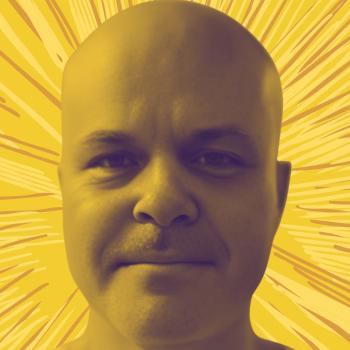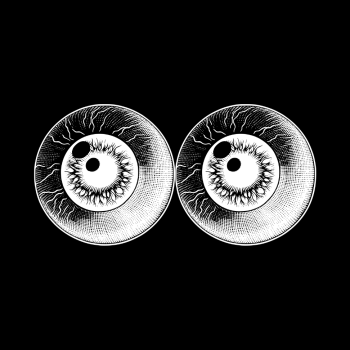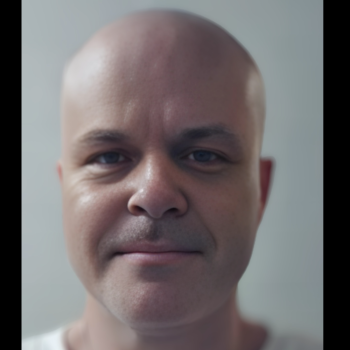We begin with the word queer. What does this controversial word mean?
The definition of the word queer at a very basic level is something that is not normative. Ours and other societies throughout human history have sought to normalize human beings. We want everyone to be easy to figure out. We want everyone to fit labels and categories.
Our lesbian, gay, bisexual, and transgender friends know well the many pressures of normativity. Why can’t you just date guys like the rest of the girls? Why can’t you just become accustomed to the identity that God gave you? Why can’t you just date girls like the rest of the guys? These are just a few of the many pressures of normativity, labels, and categories. I and this community choose to be queer. We choose to shun normativity, labels, and categories so that all might be able to embrace the uniqueness with which they are made by God, the queerness of which they are made. The word queer is a radically inclusive term that encourages people to recognize the queerness in themselves so that they might learn to accept the queerness in the other. We stand with all who have been labeled queer because we recognize the queer within ourselves.
How should the word queer function in a church setting? If we are going to call ourselves a queer church, then what will that mean for our community?
Using the word queer as we do, the Church at Mable Peabody’s is going to be a house of love and hope for all people. We will turn no one away. This is a queer construct in a society that wants to consistently create categories of acceptance and rejection. We accept everyone. We are going to be a queer church and this means that we are going to be a radical prophetic voice of change for our community. We are going to be the change that we want to see in ourselves and in our community. We are going to be queer and the queering that we want to see in our world.
So, why be a church?
We are a church because we feel like there is something to the idea that people work better in community as opposed to individually. We are a church made up of followers of Jesus because we feel like there is something queerer in the life of Christ than in all of the other humans who have ever lived.
Queering Jesus
In Chapter 25 of the Gospel of Matthew, Jesus declares that what you have done to the least of these, the marginalized, the oppressed, you have done to me. Rather than shunning or oppressing the margins, our God takes residence on the margins. The queer community constantly experiences oppression, therefore Jesus is Queer.
I use the term Queer Jesus as a clean break from the oppression and homophobia that is constantly associated with the traditional Jesus.
You see the life of the Queer Jesus does not look all that different from the experiences that we have all had as queer folk. The Queer Jesus was rejected by family, oppressed by traditional religion, misunderstood, and ultimately persecuted by those the Queer Jesus loved. The Queer Jesus experienced all of the pain and marginalization then and continues, through inhabiting our community, to experience marginalization and oppression. The Queer Jesus was harassed and killed in a violent hate crime perpetrated by religious folks for refusing to conform. Throughout the life of the Queer Jesus, there was an expectation to be normal and not be queer. Constantly in the Gospel accounts, the Queer Jesus deals with the fear of being Queer.
On the days and nights leading up to the death of the Queer Jesus there were many wounds inflicted. On the night the Queer Jesus was killed, folks started betraying the Queer Jesus. Trusted family and friends abruptly turned their backs. How many of you have known times when the folks you love don’t show up at the showdown? Later, as the Queer Jesus prays for the courage to be queer and face what is about to come. The Queer Jesus asks the disciples to stay awake so that the Queer Jesus won’t have to experience all of this alone. How many of you have needed people to stay awake with you so you won’t be alone and looked out to find everybody asleep?
There is no question that the Queer Jesus was terrified of what was coming. A very painful time was approaching that would require the Queer Jesus to open up and there was a need to push through the fear. How many of us have struggled with the pain of opening up and being who we are called to be?
Later, the Queer Jesus is betrayed with a kiss. How many of us know the pain of something that feels good, but ultimately kills us? When the Queer Jesus goes before the Roman Governor Pilate, the government denies the Queer Jesus due process and civil rights. How many of us know about a denial of due process and civil rights? Just last week, the Supreme Court heard arguments with regard to marriage equality. Which side do you think that Jesus is on…the side wanting to deny rights or secure rights? After being beaten and gaybashed over and over the Queer Jesus is crucified. Above the head of the Queer Jesus was a sign that read queer. The Queer Jesus was outed and nailed up on a cross for all the world to see. In spite of the hate and oppression, the Queer Jesus shouts, “Forgive them for they know not what they do.” These words change all who hear them. People can’t believe the love and compassion of the Queer Jesus in spite of the pain. Sacrificial love is a queer construct, it simply is not normative. Sacrificial love flies in the face normativity and loves anyway. The Queer Jesus dies so that queerness, love might reign.
The death of the Queer Jesus is a hate crime of the highest order. The proponents of bigotry and hate thought they had one. Queerness was defeated. The proponents thought they killed love and hope, but normativity and death never win with the Queer Jesus.
There were some really shitty things that happened on Friday. There was a tremendous amount of pain and fear on Friday. But we are not a Friday kind of church.
Early on that fateful Sunday morning, some of the women who were closest to the Queer Jesus went to check the tomb. They intended to spread some oils and spices to make the stink go away. How often when we are used up and feel dead do people try to put some spices and oils on us to make us smell better? Mary Magdalene led the group and saw the stone removed. She cried out, “They have taken my Jesus and I don’t know where they have laid my Jesus.”
I look around our town and see a tremendous amount of celebration at churches this morning for Easter, but I didn’t see a whole lot of pastors at the marriage rally. They have taken my Jesus and I don’t know where they have laid my Jesus. Churches don’t seem to care much about queer folk. They have taken my Jesus and I don’t know where they have laid my Jesus.
Friends, the traditional church has stolen Jesus and for that matter has killed Jesus by weighing the construct down with an unbelievable history of oppression and hate. We are seeking to resurrect the true Jesus. The Queer Jesus who heals and loves through queerness.
Like the Queer Jesus, we use our wounds to help and not to hurt others.
When the Queer Jesus meets Thomas after the resurrection. Thomas asks, “How do I know it is you?” The Queer Jesus steps forward and shares the unique wounds inflicted during the hate crime, nail prints. Our wounds are often one of the more queer things about us. They help us to discover who we are and how we can help others. When you give your wounds away you are saying they have no power over you and you are using them to help others get out from under the grip of their wounds. Displaying your wounds shows sacrificial love. We all, like the Queer Jesus, must push through our fear in order to heal by our wounds. The scripture says that by the Queer Jesus’ wounds we are healed. We, like the Queer Jesus, can heal with our wounds.
When we come out with our wounds and refuse to be afraid of fear then we can transform this community, this nation, and this world. The question is one of courage. Will we push through and share our wounds, our queerness, our vulnerability with others? If you do have such courage, then you, like the Queer Jesus, will transform yourself and the world.
Jesus is queer and I pray that we will all have the courage to let everyone see that we are too.
Amen.













